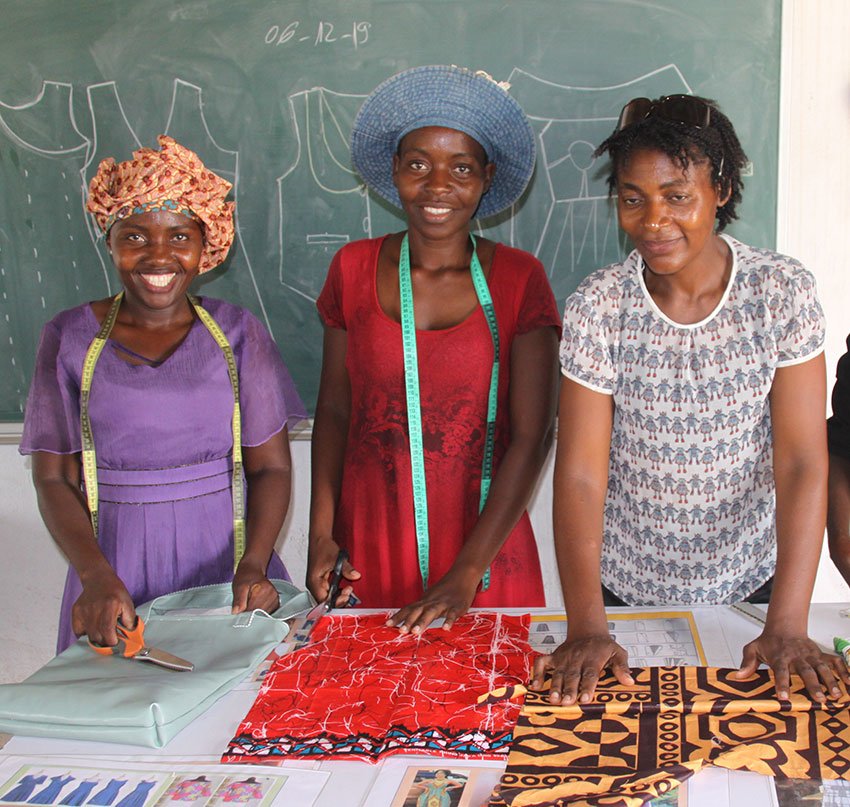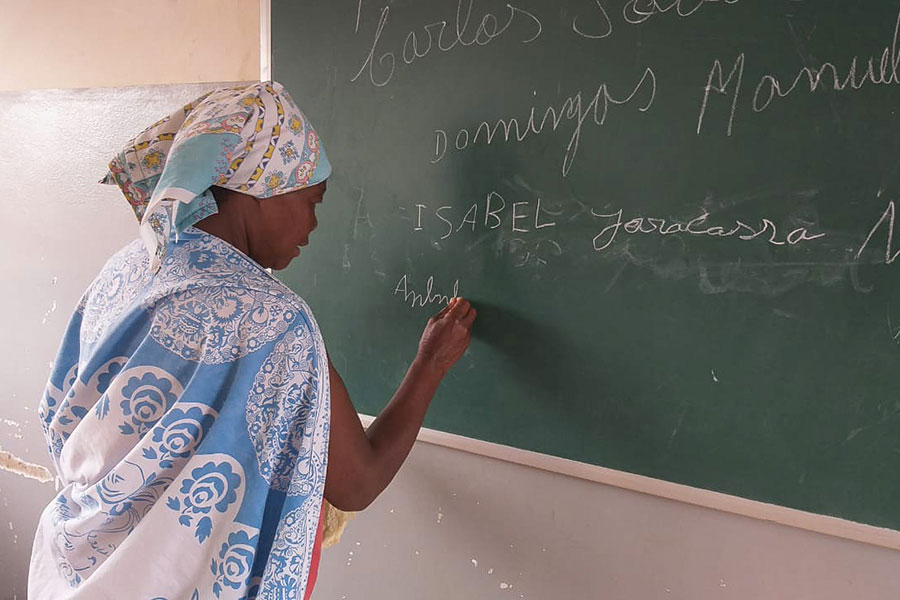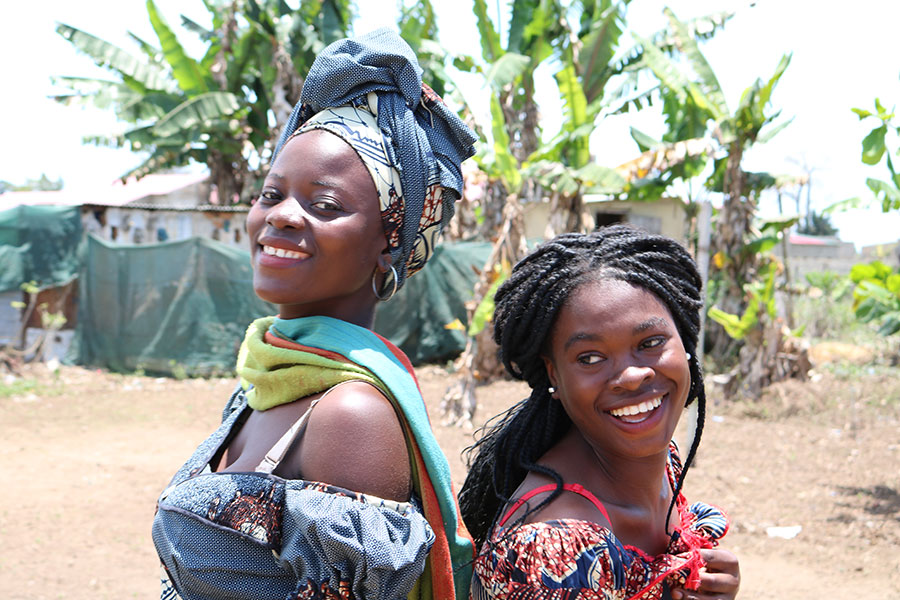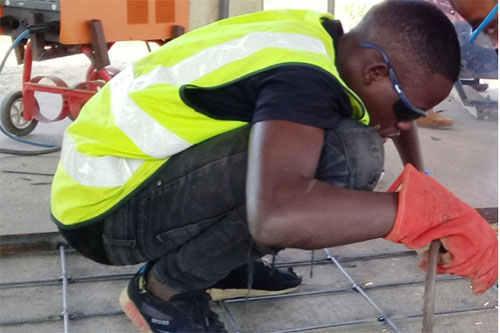LITERACY AND CROSS-CUTTING ISSUES
There are a number of issues which are so fundamental, that they feature across all ADPP projects, with literacy and gender equality two of the foremost. From project participants learning to read and write, or teachers holding community literacy sessions, everyone at ADPP is motivated to help irradicate illiteracy.
Capacity building of staff is also a key feature of ADPP’s work, ensuring that the many people working at project around the country are continually increasing their capacity to create development.
Literacy learners in 2020
% Women
Literacy learners since 2011
LITERACY
Literacy is key to success in all walks of life and for everybody: young and old, male and female. ADPP integrates litearcy training into as many projects as possible, as well as operating dedicated literacy projects.
ADPP is helping thousands of people onto the literacy ladder. From 2010 to 2014, 106,369 people, 61% of whom women, achieved Grades 2 to 6 as part of a nationwide rural development programme which ADPP implemented with the Ministry of Families, Agriculture and Rural Development.
The majority of participants were smallholders. Literacy has been integrated into as many Farmers’ Club projects as possible since 2012, covering Cunene, Cuando Cubango, Cuanza Sul, Cuanza Norte, Malanje, and Luanda. The most recent campaign started in 2018 and is benefiting almost 7,000 smallholders in 60 communities across the provinces of Bié, Huambo and Malanje in the Market-Oriented Smallholder Agriculture Project.
Literacy opens up a new world, enabling farmers to keep accurate records of production and possessions, to be in control when signing documents, to apply for identity cards, to glean information for themselves from labels, posters, newspapers and pamphlets, to ensure fair prices and honest transactions. Moreover, lessons for farmers are adapted to include topics of agricultural interest plus health, welfare and citizenship.
Elsewhere, there were 7,774 literacy learners in four provinces in the project Community Development in Inland Fishing Communities, 2018/2019; 600 literacy learners in two fishing villages in Luanda between 2016 and 2018; 1,630 youth and adult participants in literacy classes at Lovua settlement for refugees from DRC; Cuanza Norte Educational Centre reached more than 3,700 people with literacy lessons in 2017-18; 1,038 literacy learners reached Module 3 at the Education for All project in Lunda Sul 2015-2018; Basic Education for a Productive Future (2009-2014) saw 5,085 youths and adults complete literacy training, and final year.
ADPP Teacher Training School students have undertaken hundreds of literacy micro projects during their long-term teaching practice in rural communities.
GENDER
ADPP operates numerous projects specifically aimed at empowering girls and women, from raising awareness on HIV, to providing tailoring and entrepreneurship training. However, gender is not a “women’s issue”, and equality is not achieved purely by working with women.
At Teacher Training Schools, efforts are made to enrol equal numbers of male and female students in order to boost the number of female teachers, especially in rural schools. Women in the classroom act as role models, encouraging and supporting girls to continue their education.
During the education, male and female students are expected to work together on all kinds of tasks, irrespective of whether these are traditionally associated with one gender. Both male as well as female students at six ADPP teacher training schools participated in an All Girls in School campaign in 2016 and 2017, the legacy of which continues since all trainees are aware of gender issues.
ADPP polytechnics encourage students to look beyond traditional roles when choosing a course to follow, although there is a long way to go to achieve parity. Frontline Institute trains women for managerial roles on an equal footing with men.
Girls’ Clubs help empower girls and young women with, among other things, knowledge of sexual and reproductive health, and such programs go a step further by involving boys and young men in order to tackle male attitudes.
A CAPACITAÇÃO DO PESSOAL
A capacitação do pessoal é uma forma de promover o desenvolvimento inclusivo e a ADPP recruta muitos funcionários das áreas rurais em todo o país, pessoas cheias de ideias, energia e desejo de criar desenvolvimento, mas que não tiveram a oportunidade de obter emprego.
O compromisso da ADPP com o treinamento em serviço lhes dá a oportunidade de adquirir experiência, desenvolver sua capacidade e alcançar seu potencial. A ADPP Angola sempre reconheceu a importância dos funcionários e voluntários nos seus projetos, e também reconheceu a importância da formação para construir aptidões e competências, proporcionar motivação, trocar experiências e empoderar.
O treinamento em gestão é a chave para promover as habilidades internas e nacionais. O Instituto da Linha da Frente na província do Huambo, criado em 2009, oferece aos colaboradores da ADPP, voluntários e ex-alunos a oportunidade de desenvolverem o seu potencial em gestão. Eles passam seis meses no Instituto da Linha da Frente, aprendendo mais sobre ADPP, sobre desenvolvimento e adquirindo habilidades práticas tanto na escola quanto em projetos locais da ADPP.
Os participantes, então, aprimoram essas habilidades ao longo de cinco meses de experiência em gestão em projetos como Clubes de Agricultores - uma experiência mutuamente benéfica. 90 professores das escolas de formação de professores estudavam a distância na One Word University em Moçambique. O Centro de Cursos e Conferências da ADPP (CCC) na província de Luanda, município do Ramiro é o cenário para seminários, cursos, reuniões e treinamentos, que vão desde a integração de pessoas com deficiência até documentar e verificar devidamente os resultados dos projetos.
As reuniões de planificação trimestrais realizadas no CCC fornecem uma oportunidade para trocar experiências dentro e entre os tipos de projeto, bem como para actualizar o conhecimento, discutir as realizações e planificar com antecedência. A planificação em si é uma habilidade-chave, e a implementação eficaz do projeto depende disso. Durante a pandemia de Covid-19, a capacitação continuou a distância.
TIMELINE
GLOBAL GOALS
Free Primary and Secondary Education
Equal Access to Quality Pre-Primary Education
Equal Access to Affordable Technical, Vocational and Higher Education
Build and upgrade inclusive and safe schools
No Discrimination in Education
Universal Literacy and Numeracy
Education for Sustainable Development and Global Citizenship
Increase the Number of People with Relevant Skills for Financial Success





